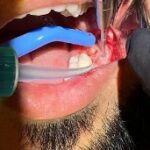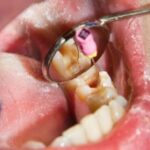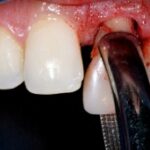Root canal treatment in bangalore

Root canal treatment in bangalore is an often straightforward procedure to relieve dental pain and save your teeth.Patients typically need no. 1 root canal treatment in bangalore when there is inflammation or infection in the tooth.During root canal treatment in bangalore,an indodontist who specializes in no. 1 root canal treatment in bangalore carefully removes the pulp inside the tooth,cleans disinfects and shapes the root canals and places a fillings to seal the space.



why you need root canal treatment in bangalore?
Root canal treatment in bangalore is a treatment to repair and save a badly damaged or infected tooth instead of removing it. The term “no. 1 root canal tratment in bangalore” comes from cleaning of the canals inside a tooth’s root. Decades ago, no. 1 root canal treatments in bangalore often were painful. With dental advances and local anesthetics, most people have little if any pain with a root canal tratment in bangalore. In fact, it’s probably more painful living with a decayed tooth. Root canal treatment in bangalore alternatives include extracting the damaged tooth and replacing it with a dental implant, bridge or removable partial denture.
Aetiology of root canal treatment failure why well‐treated teeth can fail
Reasons for root canal treatment in bangalore
When there is tooth decay the pulp inside the tooth becomes inflamed or infected and becomes painful. The other reasons where root canal treatment in bangalore needed is
- Deep dental caries
- Bulk fillings
- Crack in the tooth
How does root canal treatment save the tooth?
The endodontist removes the inflamed or infected pulp, carefully cleans and shapes the inside of the root canal tratment in bangalore, then fills and seals the space with root sealents and Gutta percha points. Later, the root canal treatment in bangalore filled tooth is covered by placing a crown and the tooth is protected and restore its function.
Will I feel pain during or after the root canal treatment in Bangalore?
Many endodontic procedures are performed to relieve the pain of toothaches caused by pulp inflammation or infection. With modern techniques and anesthetics, most patients report that they are comfortable during the procedure.
Procedure for Root canal Treatment in bangalore Endodontic
Endodontic treatment can often be performed in one or two visits and involves the following steps:
- The endodontist examines and takes a radiograph of the tooth using x-rays, then administers local anesthetic. After the tooth is numb, the endodontist places a small protective sheet called a Rubber dam over the area to isolate the tooth and keep it clean and free of saliva during the procedure.
- The endodontist makes an opening in the crown of the tooth. Very small instruments are used to clean the pulp from the pulp chamber and root canals and to shape the space for filling.
After space is cleaned and shaped, the endodontist fills the root canals with a biocompatible material, usually a rubber-like material called gutta-percha. The gutta-percha is placed with an adhesive cement to ensure complete sealing of the root canals. In most cases, a temporary filling is placed to close the opening. The temporary filling will be removed by your dentist before the tooth is restored.
After the final visit with your endodontist, you must return to your dentist to have a crown or other restoration placed on the tooth to protect and restore it to full function.
If the tooth lacks sufficient structure to hold the restoration in place, your dentist or endodontist may place a post inside the tooth. Ask your dentist or endodontist for more details about the specific restoration planned for your tooth.
After a root canal, try to eat soft foods that require very little chewing, like applesauce, yogurt, eggs, and fish. Avoid hard or hot foods that might hurt your teeth. Some dentists suggest to not eat for a few hours until the numbness in your mouth wears off so you don’t bite your cheek or tongue.
For the first few days after a root canal, some patients experience sensitivity, swelling, or inflammation, while others experience an uneven bite or a reaction to the medication provided by the endodontist. Regardless of symptoms, a follow-up appointment is almost always needed.
Needing a crown after a root canal depends highly on the location of the tooth in the mouth—teeth towards the back of the mouth like molars and premolars are needed more for chewing, and generally require crowns, where incisors or canines which aren’t needed for chewing don’t always require crowns.
Root canals can fail for a variety of reasons, including a procedure that didn’t clean the canals to begin with, a breakdown of the crown or its inner sealant, or essentially anything that allows the tooth that previously had a root canal treatment to become infected at the root and affect other teeth.
If left untreated, the infection in the tooth can spread to other parts of the body, and in some cases can even be life threatening. If you are in need of a root canal, the infected pulp in the tooth needs to be removed.
Unless told otherwise by your dentist or endodontist, brush and floss as you regularly would after a root canal treatment.
Sometimes after a root canal, the tooth can become slightly discolored or develop spots called intrinsic stains, where the tooth bleeds internally and the inner part of the tooth turns yellow or dark. Luckily, the tooth can be whitened afterward through internal (non-vital) bleaching.
Most root canals can be done in one to two appointments. The first appointment is the procedure itself when the infected pulp is removed. The second (and maybe third) appointment is when the root canal gets cleaned and filled with a crown or other filling to prevent infections.
While all general dentists have been trained in root canals, more often than not the procedure is done by an endodontist. Generally speaking, a dentist specializes in exterior teeth and gum health, an endodontist specializes in the health of the inside of the tooth.
Waiting too long to get a root canal can oftentimes result in tooth loss. This generally occurs when the root of an infected tooth has gone untreated for so
Waiting too long to get a root canal can oftentimes result in tooth loss.Many times with severe furcation, it might be too late for a root canal and the tooth would need to be extracted.
You can eat normally before a root canal treatment, and most endodontists even allow patients to eat up to 1 hour before a procedure. However, as with
all oral procedures, most endodontists prefer that you brush your teeth prior to the appointment.long that results in bone loss. Many times with severe furcation, it might be too late for a root canal and the tooth would need to be extracted.
